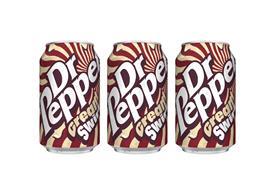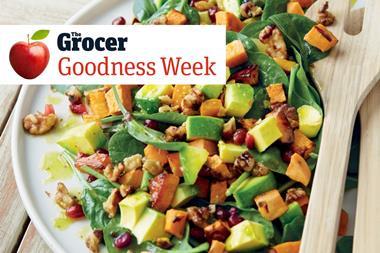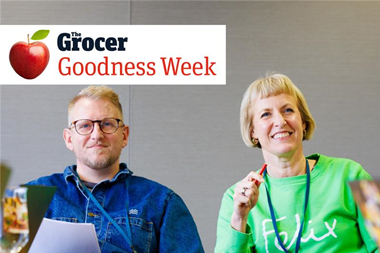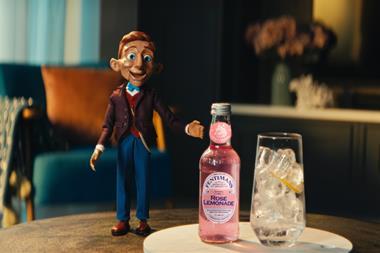Express Newspapers tycoon Richard Desmond plans to tackle Britain’s “health inequalities” with his new lottery. How sound a venture is it, asks Elinor Zuke
Adult TV channel Red Hot Mums and The Health Lottery are unlikely bedfellows. But when tickets for the new lottery go on sale next Thursday they’ll have one thing in common: making money for Richard Desmond.
The media magnate is investing huge sums launching a competitor to the National Lottery, with his Northern & Shell company intending to plough in a claimed £35m in marketing in the first year alone - more than last year’s £30.3m pre-tax profits.
If all goes to plan, the prize could be huge. A £1bn business in five years - double the turnover of Desmond’s entire empire - is the plan.
The man himself has said he “definitely” expects The Health Lottery (THL) to increase sales of his publications, including the Daily Express, Daily Star and OK! He has not been specific as to exactly how. Naturally there will be a halo effect for Express Newspapers given the lottery’s goal of spending 20p in every pound on redressing “health inequalities” in Britain, a cause that CEO Martin Hall says is close to Desmond’s heart.
“We are a commercial organisation but we won’t make a return this year, and when we do it will be a relatively small percentage,” says Hall. “Richard’s reason for doing this is the good causes. But of course he’d expect us to make a return, as with all his businesses.”
But does that 20p look slightly less than philanthropic when compared with the 28p that the National Lottery distributes to good causes? No, insists Hall. “Four pence of that goes to the Olympics, 4p to arts and 4p to heritage. The balance goes to good causes. I think that’s a good comparison.”
Hall also stresses that all the health causes will be “incremental and on top” of NHS provisions. He gives the example of helping the 30,000 children aged under 15 who look after terminally ill parents. “The NHS provides the parents with the drugs to manage their condition, but it isn’t the job of the NHS to look after a 13-year-old who has just put her dying mother to bed and is crying herself to sleep. It’s one of those things that gets missed,” he says.
So The Health Lottery’s money will go to taking those children on holiday and providing them with counselling, he pledges. Another plan is transport for patients who can’t afford to get to hospital appointments.
The charity element of the new lottery will be split up among a network of 51 regional, not-for-profit Community Interest Companies, which will identify where the money will go.
Each CIC, says THL, operates independently with an exclusive remit to tackle “redressing the imbalances of health care provision”. They will receive 20.5p from every pound, and pass 20.34p to a single charity, People’s Health Trust, which will in turn be responsible for administering grants according to the priorities identified by each CIC. Trustees of the new body are yet to be revealed, but its chairman John Hume spent five years at The Big Lottery Fund, with responsibility for making health grants, before setting up the consultancy Third Public.
So that’s 20.5p, and there’s another 5p in retail commission, in line with Camelot, accounted for. But how much of the £250m of first-year sales will be given out as prizes? With a top prize of £100,000 guaranteed to all players who match five balls out of five, Hall claims it’s impossible to say.
“It is conceivable that three or four times in any one week our revenue could go on prizes. And if that ball machine decides to pull out a very popular combination of balls, then a very very expensive insurance policy kicks in,” he adds.
Gambling Commission rules prevent a multimillion pound jackpot. And although £100,000 isn’t quite enough to quit your day job and drive a Lamborghini off into the sunset, Hall points out that it is still a life-changing sum.
“£100,000 pays off 84% of the UK population’s mortgage, the average consumer’s debt, and leaves them money for a car as well,” he claims. Players who match three balls out of five will get £50, and although they statistically have less chance of matching three balls out of five than out of six, as in the National Lottery, Hall claims consumers who were consulted preferred the look of £50 to the National Lottery’s £10.
“We pointed it out to consumers but they said ‘yeah, but £50 is more meaningful, that’s a night out. Ten quid is a two-pack of beer and half a packet of cigarettes’. It just doesn’t buy what it did 14 years ago.”
But in a category famed for its failure to produce a credible alternative to the National Lottery, will THL fare any better?
“I’ve had the benefit of working for companies who’ve walked over graveyards,” says Hall, referring to the launch of Doritos in the UK, where corn chips had historically failed. “You have to obey the category rules,” he says.
The first is to charge £1 and the second is to hold the draw on a Saturday, he explains and, crucially, the launch must have very high visibility.
“BingoLotto spent just £486,000 on above-the-line advertising. In my 20 years in marketing, that’s not a launch.”
Sales director Tony Holmes is equally bullish about the muscle Northern & Shell is giving the launch. “I know how much money Coke and Cadbury invest in the market. We’re blowing straight through that, because it’s such a critical part of our journey to get right.”
The choice of ITV for the draw, in addition to Desmond’s Channel 5, in a slot close to The X Factor, was another important piece of the puzzle. “The simple reality is don’t do it on Virgin 1. It’s a great channel, but 95% of the population won’t have heard of you.”
This is also why the company is putting so much effort into distribution. As well as having reps make 125,000 visits to demonstrate the terminals and kit out 40,000 stores, Tesco is fully on board for the launch, with the other multiples rolling it out across all stores shortly. And Clinton Cards is joining the lottery category for the first time with the arrival of THL.
“It’s not enough to just be in Tesco or a few independent retailers. You have to be within arm’s reach of a desire to play a National Lottery game, and that’s where we’ll be,” adds Hall. “We’re doing this right and we’re doing it seriously.”
It’s not easy to win
- BingoLotto’s gamecards cost £2 and promised better odds than the National Lottery. Despite success in Sweden, it shuddered to a halt in the UK after just six weeks in 2008. A relaunch in 2009 was scrapped after just four weeks.
- The Monday Lottery was launched in 2006 by former Camelot chief executive Tim Holley. It spent millions on advertising, but sold only 1.68m tickets in the first four weeks - woefully shy of its £5m per week ambitions. It closed in 2007.
- NHS Lotto started in 1988 and folded in 1996 following a court battle over its registration status. It promised to give 25% of funds to NHS causes but many were unhappy at the NHS being funded by a route other than taxes.



















No comments yet